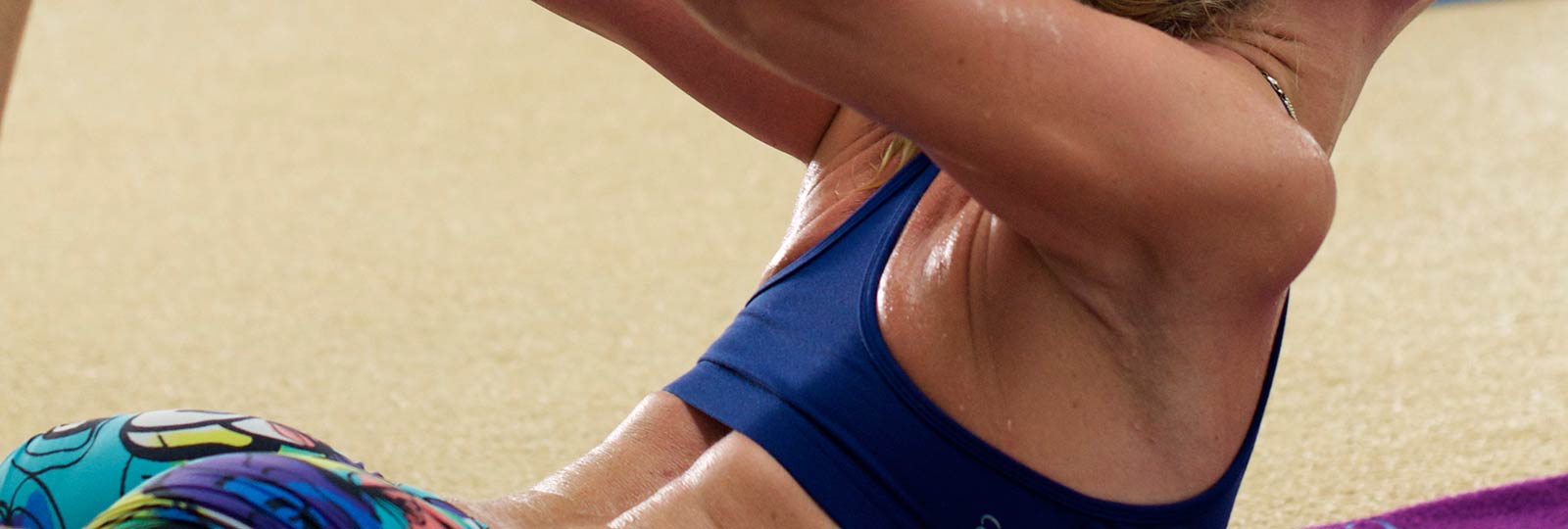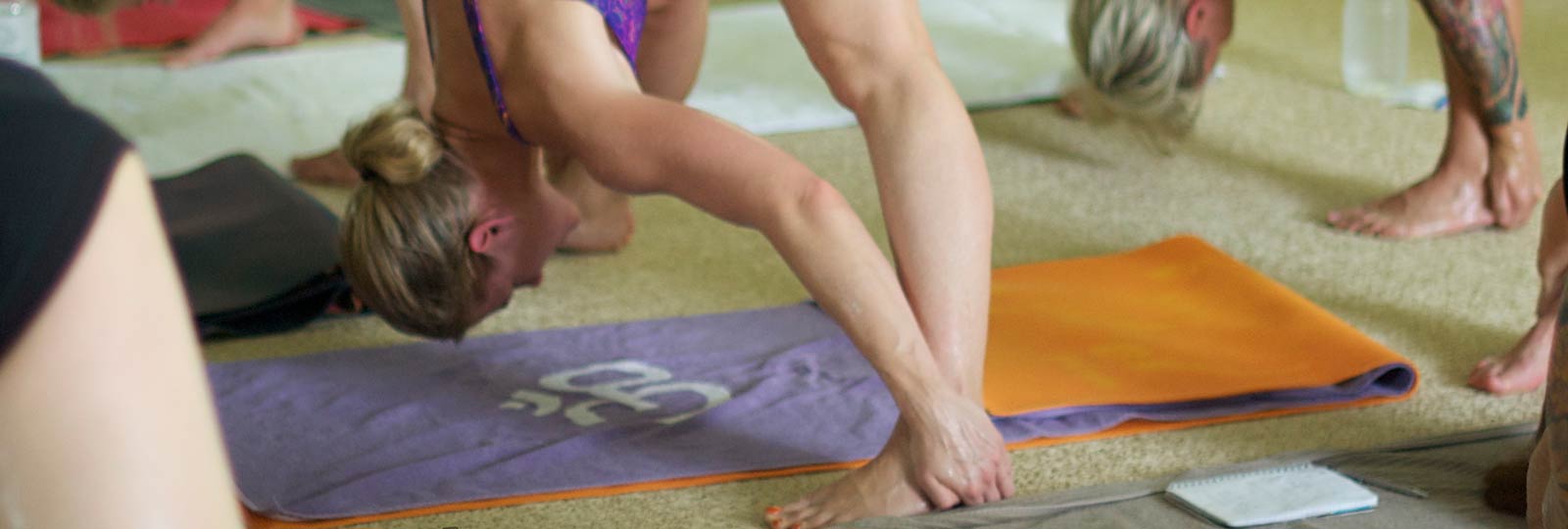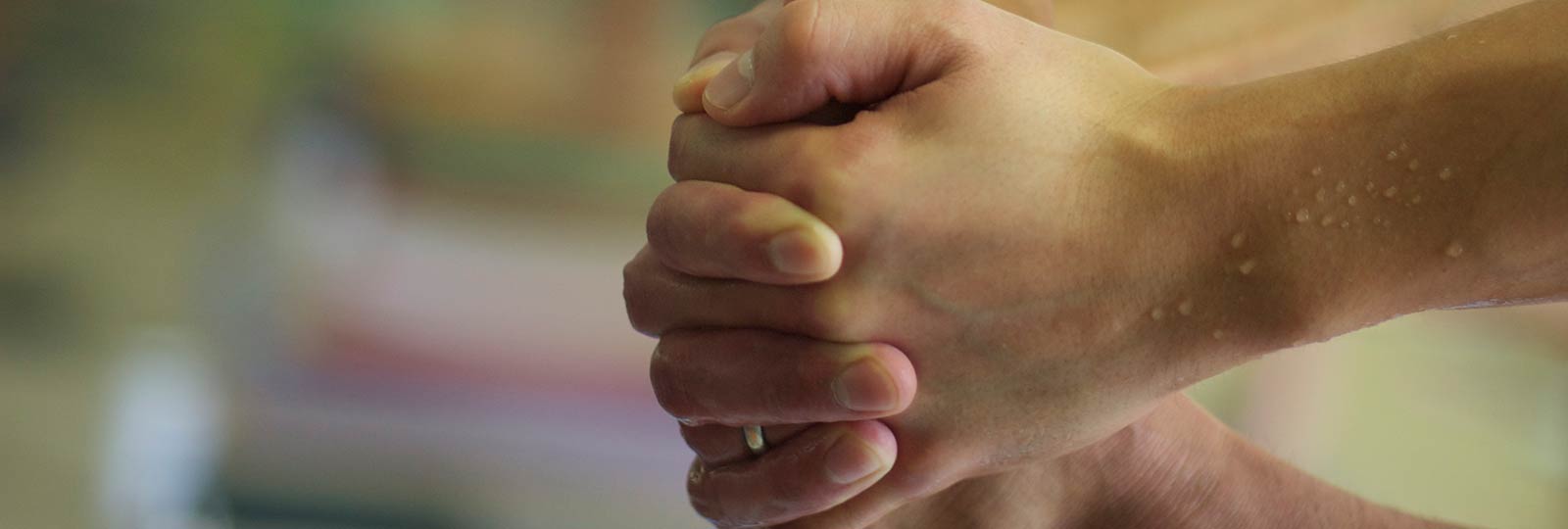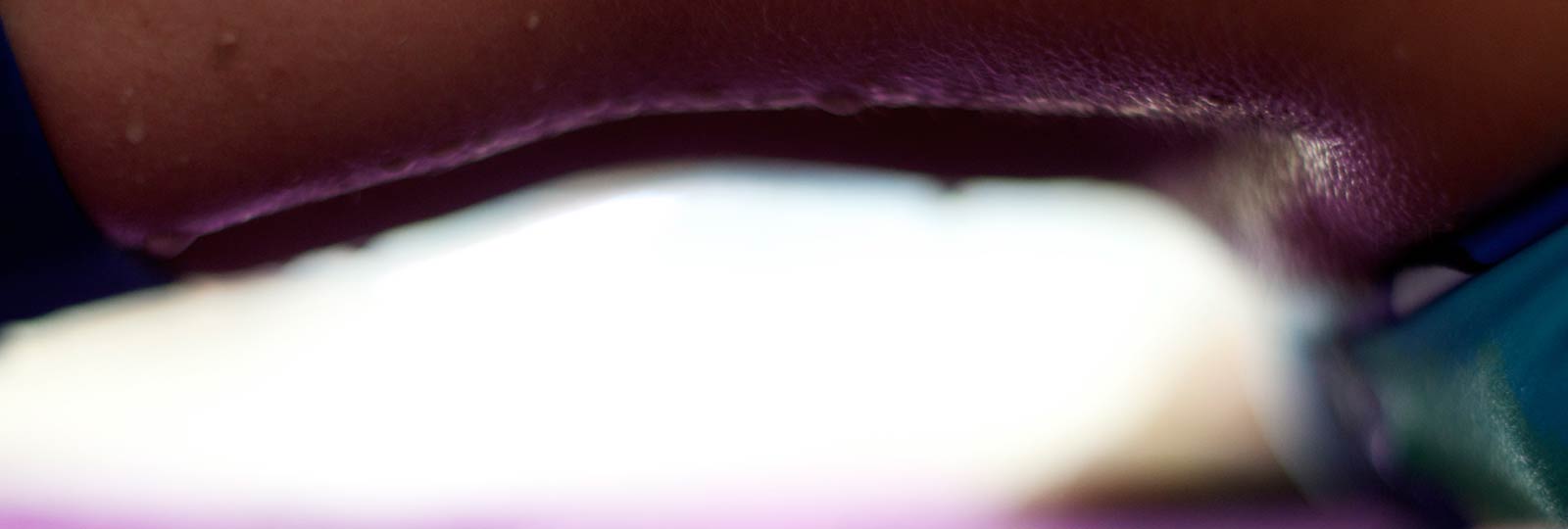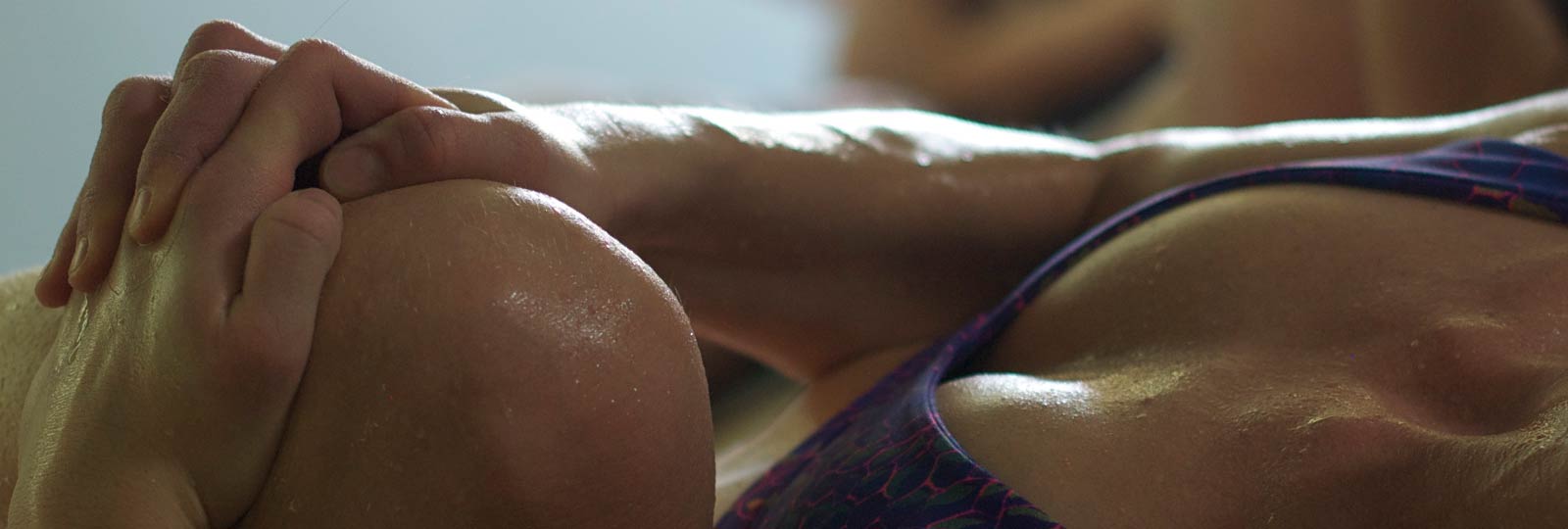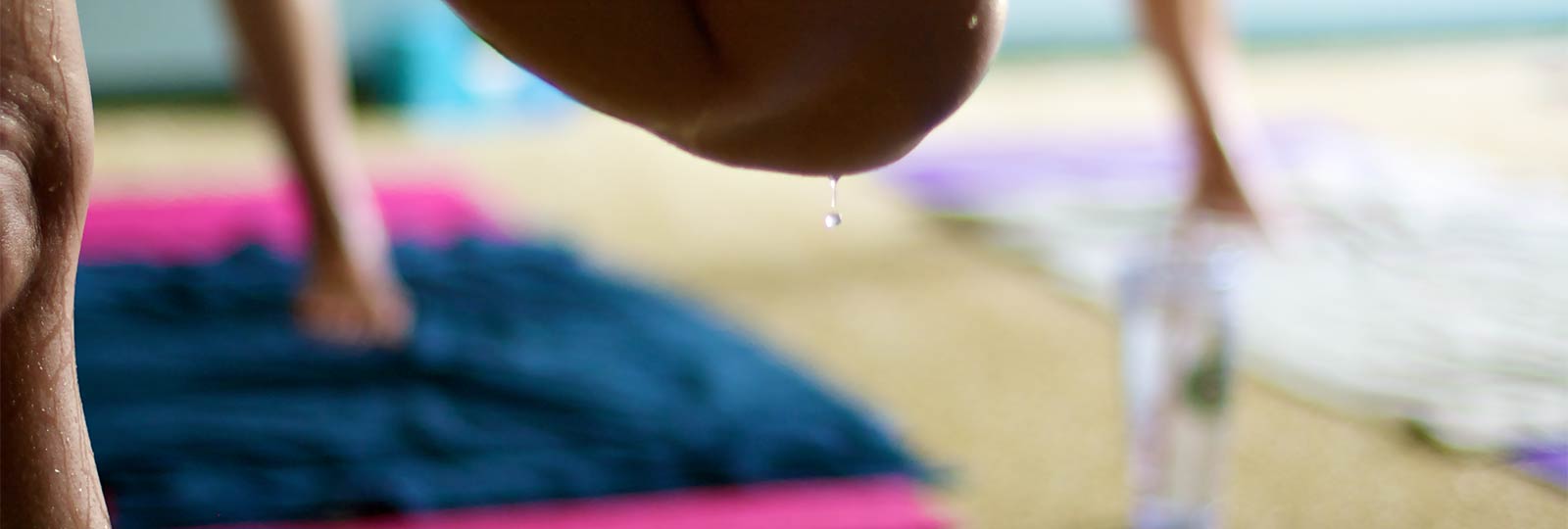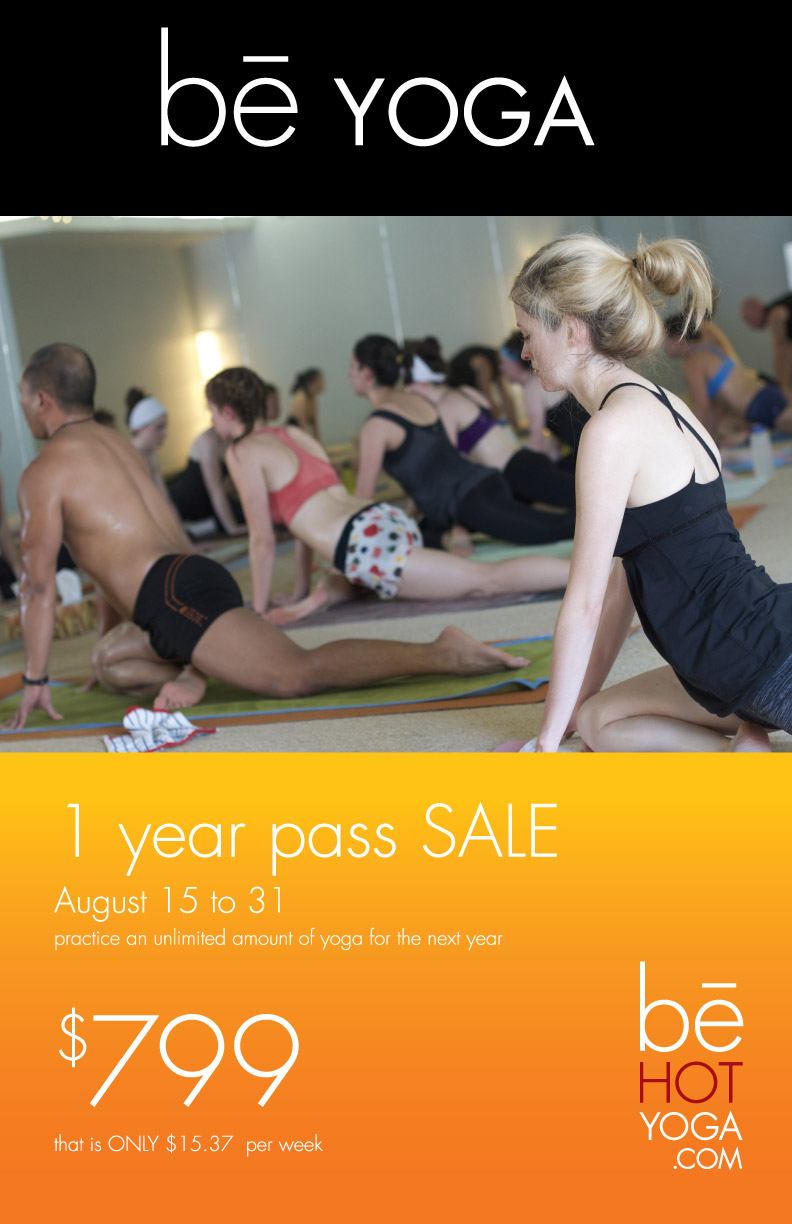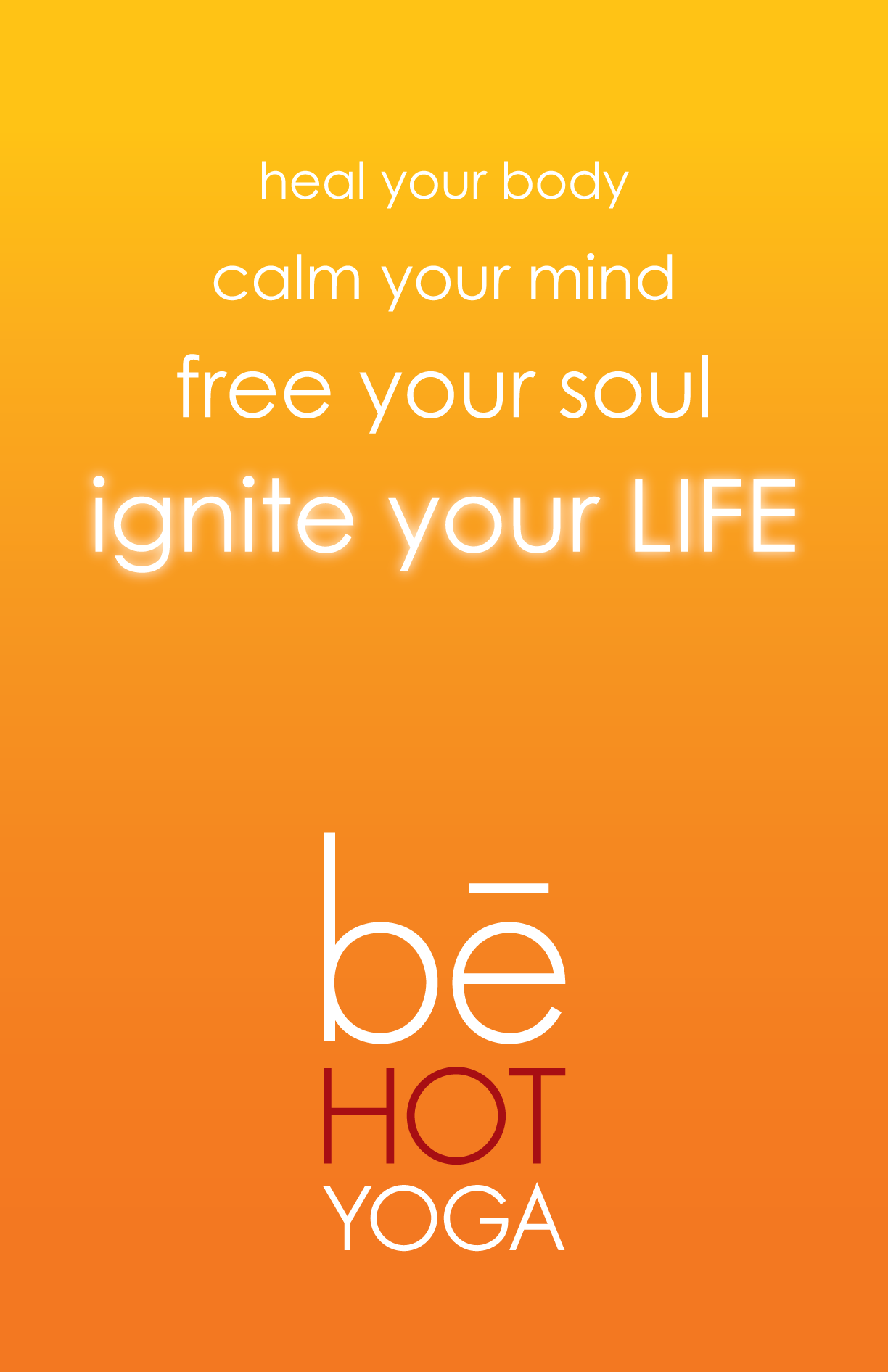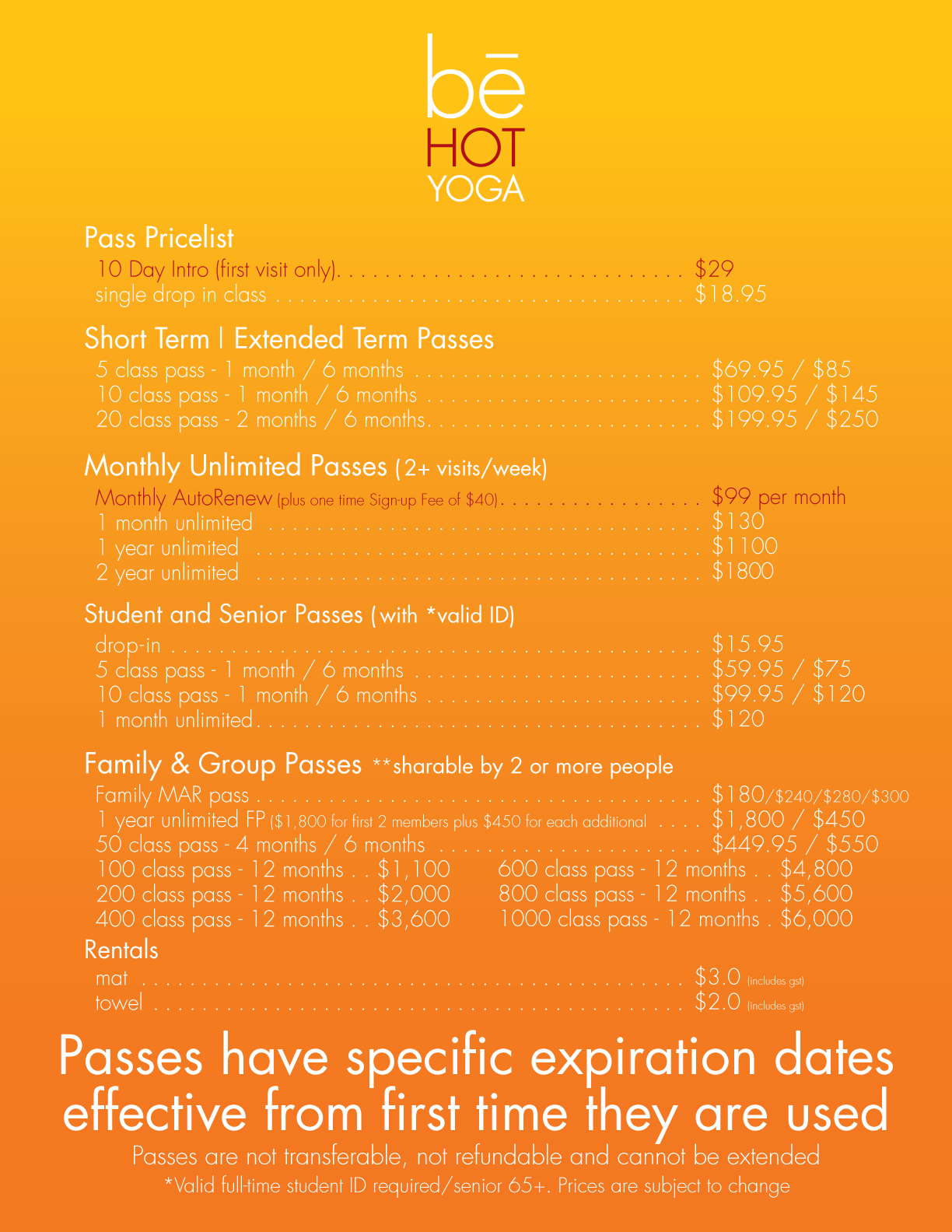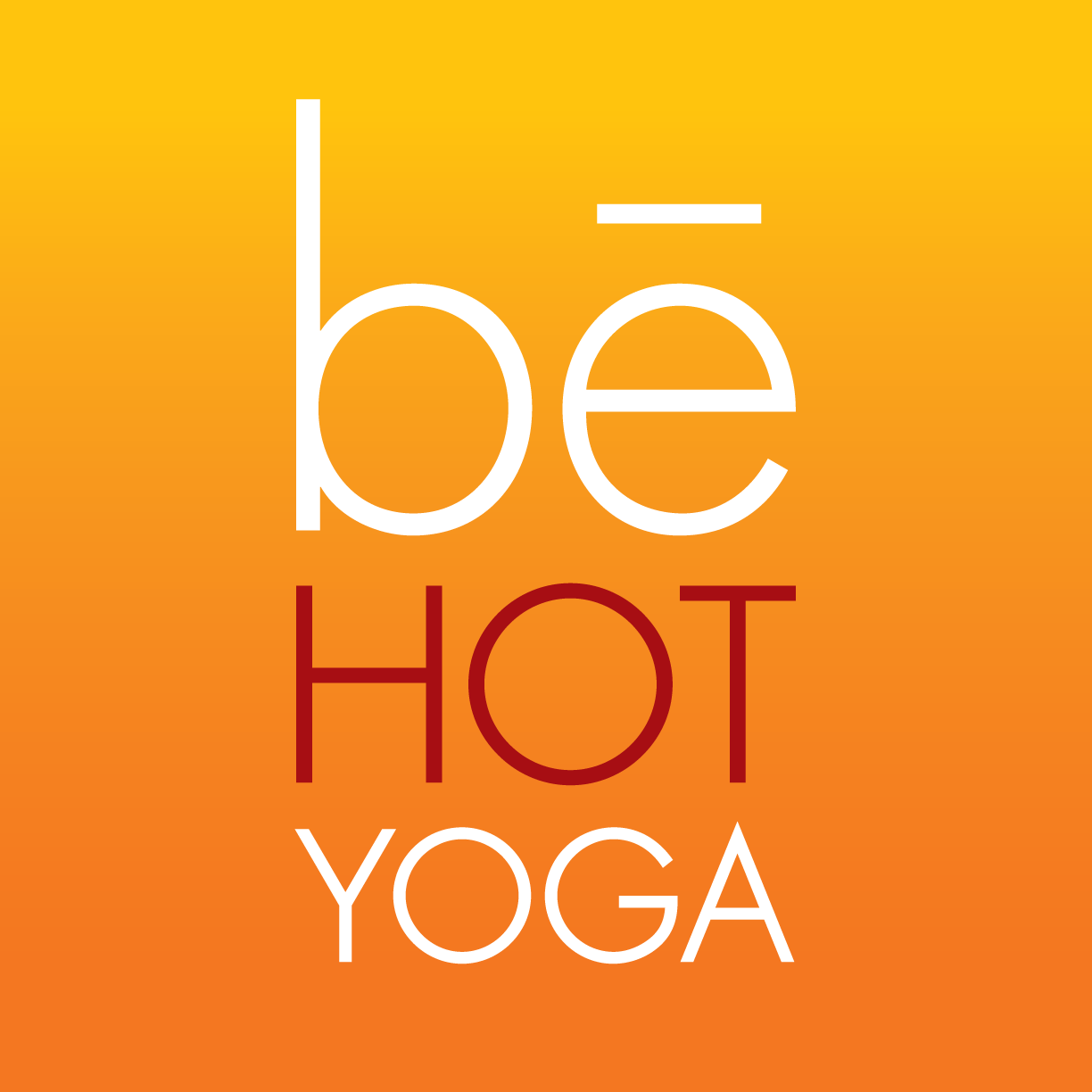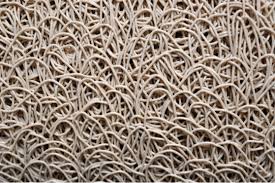
P.E.M. Yoga Floor
We searched high and low to find the perfect material to use on our studio floor. What we chose has been recommended by some of the best yoga studios in the world. It’s called Poly-Extruded Matting or PEM Yoga Flooring.
Benefits of PEM Flooring:
- Safe, textured slip-resistant surface provides sure footing and optimum safety
- Shock absorbing cushion for less stress on the body and less risk of injury
- Porous construction allows ventilation to prevent stagnant water buildup
- Designed to allow for moisture evaporation, which prevents mildew, fungi and bacteria growth.
- Non-Porous/Water-proof Material prevents does not absorb water nor stay wet like carpet
- Contains Micro-Chek® Anti-Microbial, a non-leachable biocide that further guards against the growth of mildew, fungi and bacteria.
- Does not release particles, filaments, or harmful outgases like carpet, providing a dust-free, less-toxic, and hypoallergenic environment.
PEM Yoga Floor is specifically designed to withstand high heat, moisture and humidity – Perfect for hot yoga studios!
PEM Yoga Flooring is made out of PVC, which is the same material used to make yoga sticky mats but without the foam bubbles that can retain water and sweat. It is about the same hardness as the bottom of a sneaker. It is shock absorbent, so if someone were to accidentally fall on it they would be much less likely to be injured compared to hardwood floors or even carpet. However, it is not a cushion and not soft like rubber, fitness tiles or foam matting. It is the perfect density! It provides a solid and firm foundation for practicing yoga.
PEM Yoga Flooring is an environmental enhancement solution that virtually eliminates odors, moisture problems, and the hazards associated with other toxic flooring products. PEM Yoga Flooring is clean, safe, and hypo-allergenic.
CARPET?
Carpet was not designed for uses around continuous extreme moisture. The average Hot Yoga Studio needs to steam clean their carpet every 2 months, and replace it every 5 years or less. Because carpet never seems to completely dry, mold, mildew and harmful bacteria flourish in the warm and moist breeding area that your students lay on. Even after regular cleaning the musty smell can linger on and can be quite unbearable.
WOOD FLOORING?
Wood flooring is slippery when wet and therefore hazardous? There are 3 choices for wood flooring. You can lay down cork, unsealed wood (it will rot and deteriorate in just a few short years) or regular sealed wood. When cork or sealed wood gets wet, it becomes extremely slippery and dangerous. Even the most experienced Yogis could easily slip off their yoga mat and onto the floor during a difficult pose. Many experienced teachers feel that practicing yoga on a hard floor over long periods of time can be detrimental to the body.
OTHER OPTIONS?
There are numerous choices for rubber and vinyl matting on the market. The pools of sweat that accumulate on the surface of these floors is... well it is gross. It is next to impossible to leave the room after a large class without stepping in someone else's pool of sweat. In addition, they are just as slippery as a bathtub when they get wet; even the ones that claim to be slip-resistant. In addition, most of these alternatives are laid down like square tiles or narrow rolls, leaving numerous seams where water can seep in underneath, resulting in the same unhealthy situation as carpet where bacteria and mold flourish underneath the matting.
P.E.M.® Yoga Flooring is uniquely different. Because of its porous looping construction, it provides superior traction and footing like a good snow tire. It never allows moisture to pool together or get trapped underneath. That's why P.E.M. Matting has been used for more than a decade by marinas, major theme parks, water parks, golf course walkways, pool areas, and major cruiseship lines.
YOGA FLOORING F.A.Q.'s
Q: How durable is Yoga Flooring?
Yoga Flooring is made out of PVC, which is the same base component that all standard yoga mats are made out of, as well as your household plastic plumbing. The biggest difference is that a standard yoga mat is made with PVC foam, while Yoga Flooring is made of "closed cell" extruded PVC. The Yoga Flooring just happens to be not as soft as a yoga mat, and of course much softer than plastic pipes. Yoga Flooring is heat resistant to 180 F degrees, waterproof, and stain resistant. Yoga Flooring has a 10 year OUTDOOR guarantee, which of course includes being used indoors with heavy foot traffic. It has been used on golf courses around waterways where golf carts and spiked shoes tread over it daily, and it holds up extremely well. Considering that only bare feet are going to touch this in your yoga studio, it should last for an extremely long time - While we don't have a specific guarantee for this use that will guarantee it for 20 years, we feel that it should last up to twice as long in this environment as it does outdoors, and maybe longer.
Q: Is Yoga Flooring suitable for my Hot Yoga Studio?
Yoga Flooring specifically designed for use in hot and humid environments. You'll find that PEM Yoga Flooring is far superior to any other flooring option in your hot yoga studio. Yoga Flooring virtually eliminates odors by solving the moisture problem. With our specially designed looping construction, we allow for high volume air circulation and rapid moisture evaporation. The thermal properties of Yoga Flooring accelerate this evaporation so your hot yoga studio floor stays dry. Without moisture, mold and bacteria don't flourish, leaving your studio clean and fresh. We've even tested our product for safety to ensure that there is NO outgassing of any harmful chemicals even at 120 F Degrees.
Q: Can I use gym equipment or heavy furniture over my new Yoga Flooring?
Yes. The material is very durable. However, just like other flooring options it will indent slightly over time if you leave the equipment in the same place for extended periods of time.
Q: How hard is the surface, compared to wood floors, rubber, or carpet?
Yoga Flooring is made out of PVC, which is the same material used to make yoga sticky mats but without the foam bubbles. It is about the same hardness as the bottom of a sneaker. It is shock absorbent, so if someone were to accidentally fall on it they would be much less likely to be injured compared to hardwood floors or even carpet. However, it is not a cushion and not soft like rubber, fitness tiles or foam matting. It is the perfect density! It provides a solid and firm foundation for practicing yoga. Order a free sample today. The moment you see our product you'll immediately love it!
Q: How does Yoga Flooring compare to the interlocking tiles I've seen for gyms and yoga studios?
Yoga Flooring has many advantages over these lower quality alternatives. Here are THREE: First, interlocking tiles may still have a seam through which sweat and moisture can penetrate and then become trapped UNDER the floor with no air circulation. This can become a breeding ground for bacteria and mold. The top can be perfectly clean, but the bottom can be a science project. Second, when these tiles become wet, they can be just as slippery as hardwood floors . . yes, even the ones that say non-slip! Third, and MOST IMPORTANTLY, Yoga Flooring has been thoroughly tested for emissions, and we can proudly claim that Yoga Flooring produces NO harmful emissions or out-gassing, even at 120 F Degrees of heat. We know of no maker of interlocking tiles that can make this claim about your safety. We promise that your new Yoga Flooring is safe. And, your yoga studio won't smell like a rubber tire like most of those other products do! Yoga Flooring is made from 100% virgin ingredients that have been thoroughly tested for environmental safety. You'll also find that we are competitively priced as well.
Q: How do I clean and care for Yoga Flooring?
Yoga Flooring should be vacuumed regularly just like carpet, to remove dust, hair, etc. That's basically it! You can steam clean it when appropriate, and it can also be removed and pressure washed outdoors if necessary (Yoga Flooring is not glued down like carpet, but would require cutting and re-seaming if removed for cleaning). If you are now in the design stage of your studio or happen to have a concrete floor, consider a third option - you might be able to install drains on the floor of your studio room, and then the flooring can be pressure washed right where it is, and it will last the life of your studio. It would be an extra expense to install the drains, but would be worth it if you are planning for the long term - this would work best for a location that happens to have or will have a concrete floor.
YOGA FLOORING Slip Resistance - The SAFEST floor for your Yoga Studio:
The following test for slip resistance was performed by nationally recognized slip resistance technology expert, Dr. John Cockrell.
Utilizing the state of the art BRUNGRABER MARK II slip tester according to American Society for Testing and Materials (ASTM) Standard F-1677-96.
In order to provide the most meaningful information possible, the following five representative conditions were used on both a level and a 3:1 sloped surface:
Golf shoe with Softspikes Black Widow cleats
Golf shoe with Softspikes XP Extra Performance cleats
Reebok athletic shoe
Nike athletic shoe
Neolite (a laboratory standard, smooth with no tread pattern)
The test results are shown in Table 1 and Table 2. Slip resistance was tested on a scale of (0.00-1.10) For perspective, a slip resistance of approximately (0.20-0.25) is the minimum required to prevent slips for most people walking normally.
| Table 1: | ||
| Slip Resistance of YOGA FLOORING on a Level Surface | ||
| Shoe Name | Dry Surface | Wet Surface |
| Softspikes Black Widow | 1.08 | 1.08 |
| Softspikes XP Extra Performance | 1.08 | 1.08 |
| Reebok Athletic Shoe | 0.60 | 0.465 |
| Nike Athletic Shoe | 0.89 | 0.755 |
| Neolite | 0.70 | 0.62 |
| Barefoot | 0.83 | 0.58 |
| Table 2: | ||
| Slip Resistance of YOGA FLOORING at 3:1 Slope | ||
| Shoe Name | Dry Surface | Wet Surface |
| Softspikes Black Widow | 1.08 | 1.08 |
| Softspikes XP Extra Performance | 1.08 | 1.08 |
| Reebok Athletic Shoe | 0.39 | 0.26 |
| Nike Athletic Shoe | 0.68 | 0.55 |
| Neolite | 0.49 | 0.42 |
So what does this data really mean?
YOGA FLOORING has better traction with wet bare feet than a Reebok Athletic Shoe!
How's THAT for safety!
And for all you techies out there, here's just some of the testing we've done to ensure you now get the best flooring possible:
| Technical Properties | ||
| PROPERTY | AVERAGE VALUE | TEST METHODS |
| Water Absorption |
0.10% | ASTM D570 |
| After 2000hrs UV Exposure | 0.20% | (24hr immersion) |
| Tear Strength | 275 lbs/inch | ASTM D624, Die C |
| After 2000hrs UV Exposure | 270 lbs/inch | |
| Brittleness Temperature | -50 deg F | ASTM D746 |
| After 2000hrs UV Exposure | -45 deg F | |
| Bending Modulus | 710 PSI | ASTM D747 |
| After 2000hrs UV Exposure | 700 PSI | |
| Ozone resistance | No cracks visible under 7x magnification | ASTM D-1149-91 |
| Type "A" specimens under 20% elongation, 10 parts per million ozone, 100°F for 100 Hours | ||
| Durometer hardness | 84/78 | ASTM D2249 |
| After 2000hrs UV Exposure | 82/76 | |
| Effect of Alkalies | +0.10% change in weight | CRD-C-572 Sec 7.2 |
| After 2000hrs UV Exposure | +0.15% change in weight | |
| Effect of Alkalies | +2.0 Durometer Points | CRD-C-572 Sec 7.2 |
| After 2000hrs UV Exposure | +2.5 Durometer Points | |
| Tensile Strength | 2000 psi | ASTM D412, Die C |
| After 2000hrs UV Exposure | 2100 psi | |
| UV Stability | No visible chalking | ASTM G154, 2000 hours |
| Slight discoloration | Using UVA - 340 Lamps | |
| Weather resistance | Less than 3% loss of properties | ASTM G-53 |
| 2000 hrs. exposure | ||
| National fire protection | Critical radiant flux (Watts/cm2) | ASTM E-648 |
| Association Life Safety Code - Class II Rating | Average 0.37 | NFPA Designation no. 253 |
| Soluble Hazardous Matter | No Compounds Detected | ASTM F963-96a |
| Ultimate Elongation | 360% | ASTM D412, Die C |
| After 2000hrs UV Exposure | 350% | |
